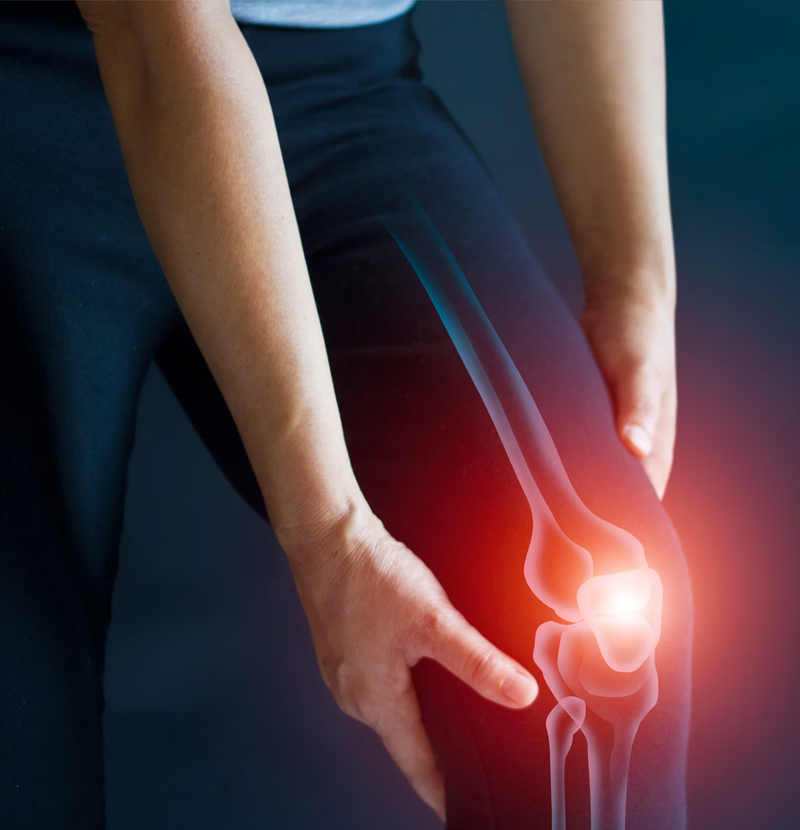Knee Decompression
How Does Knee Decompression Work?
The knee joint is gently opened up using our Knee On Track, to increase space and reduce pressure on the cartilage and meniscus.
Knee Decompression
Whether you have acute or chronic knee pain, decompression therapy can solve many of the pain issues people face.
With the pull and release of decompression, the meniscus is given an opportunity to alternatively flush out toxins and absorb new nutrients through injected PRP to regenerate collagen (what the meniscus and cartilage is made of). Decompression also creates a vacuum in the meniscus to suck the nutrients back in, allowing for healing of the meniscus and cartilage. Often times, A2M and Stem Cell Therapy are used to regenerate severely damaged cartilage in the knee. Unlike common knee surgeries, Decompression combined with PRP regenerates and restores the meniscus and cartilage without the added side effects and downtime of surgery.
Knee On Track:
Commonly Treated Knee Conditions & Causes

Why Do I Have Knee Pain?
The knee is the most commonly injured joint in the body. The knee joint sits between the two largest bones in the body making it subjected to great stress and high demands. We at Chattanooga Non-Surgical Orthopedics specialize in dealing with these common issues.
There Are Basically Three Types Of Injuries That Generate Knee Pain And Discomfort In The Leg And Knee.
1- Sprain/strain of ligaments, tendons,, and meniscus; this can be Acute such as in an athletic injury or fall. Or Chronic such as tendonitis from overuse syndrome. PRP, Low Level Laser and Prolotherapy are used to treat this type of trauma.
2- Knee Cap Pain, aka Patellafemoral Syndrome - this type of knee pain occurs when the patella is misaligned or subluxated in relation to the Femur/Tibia. This is caused by muscle imbalances. Over time, the patella develops crepitus and the cartilage begins to wear out. PRP, Viscosupplementation, Adjustments, and Low Level Laser are used to test this type of knee. If the problem is chronic, Non-Surgical Knee Decompression is used.
3 - Internal Knee Pain - in this type of knee pain, the meniscus is disrupted and osteoarthritis may be present. This is caused either by long term injury from a meniscectomy or uneven loading on the joint space. Some people are told the have "bone on bone". PRP and Viscosupplementation combined with non-surgical knee decompression are utilized to relieve the pain and avoid meniscectomy or even a knee replacement.
If the meniscus has a full thickness tear or severe OA is present Stem Cell Therapy is utilized. Stem cells derived from adipose tissue are injected into the knee to provide cushion and cartilage regeneration. A2M is sometimes used to prevent the breakdown of cartilage and reduce inflammation.
There is significant evidence that many knee surgeries such as meniscectomy done in the past were not only unnecessary but also undesirable because they do not fix the misalignment and imbalances. Articulate cartilage pressure increases greatly when the meniscus is removed, leading to osteoarthritis of the knee. This in turn leads to repeated cortisone injections which degrade cartilage eventually leading to a total knee replacement.

